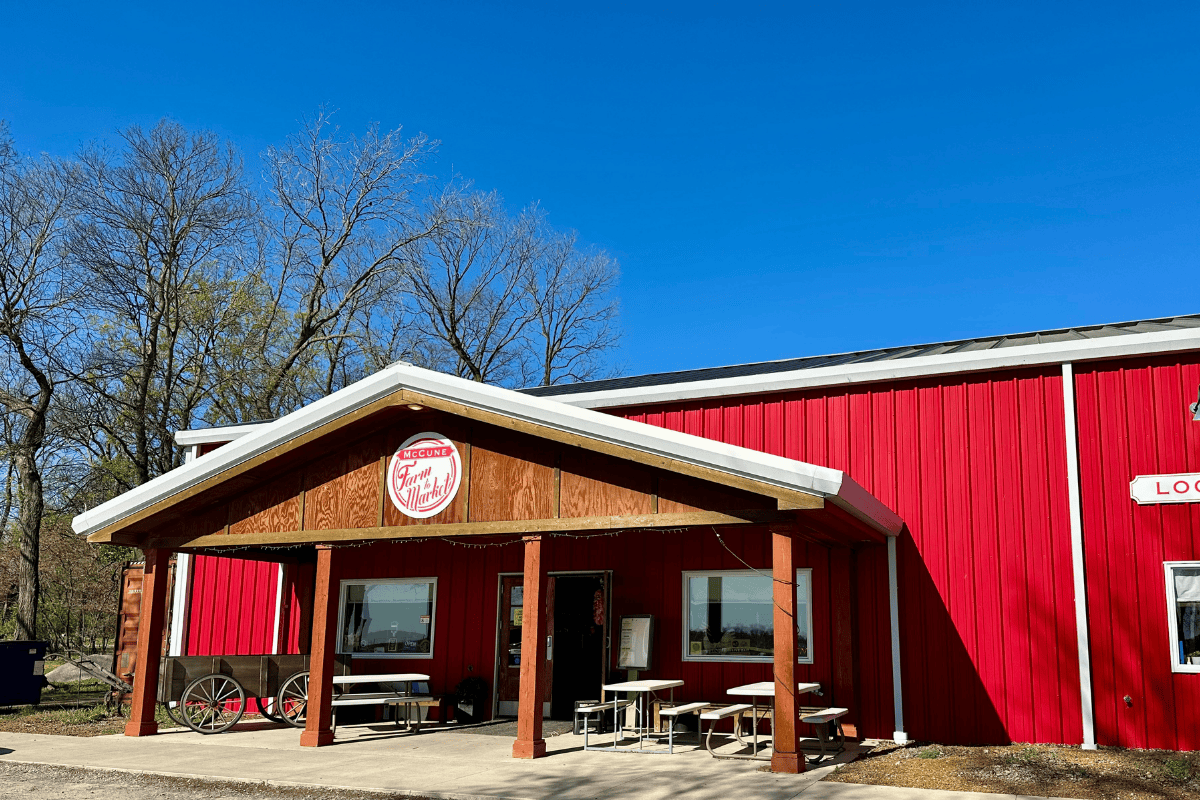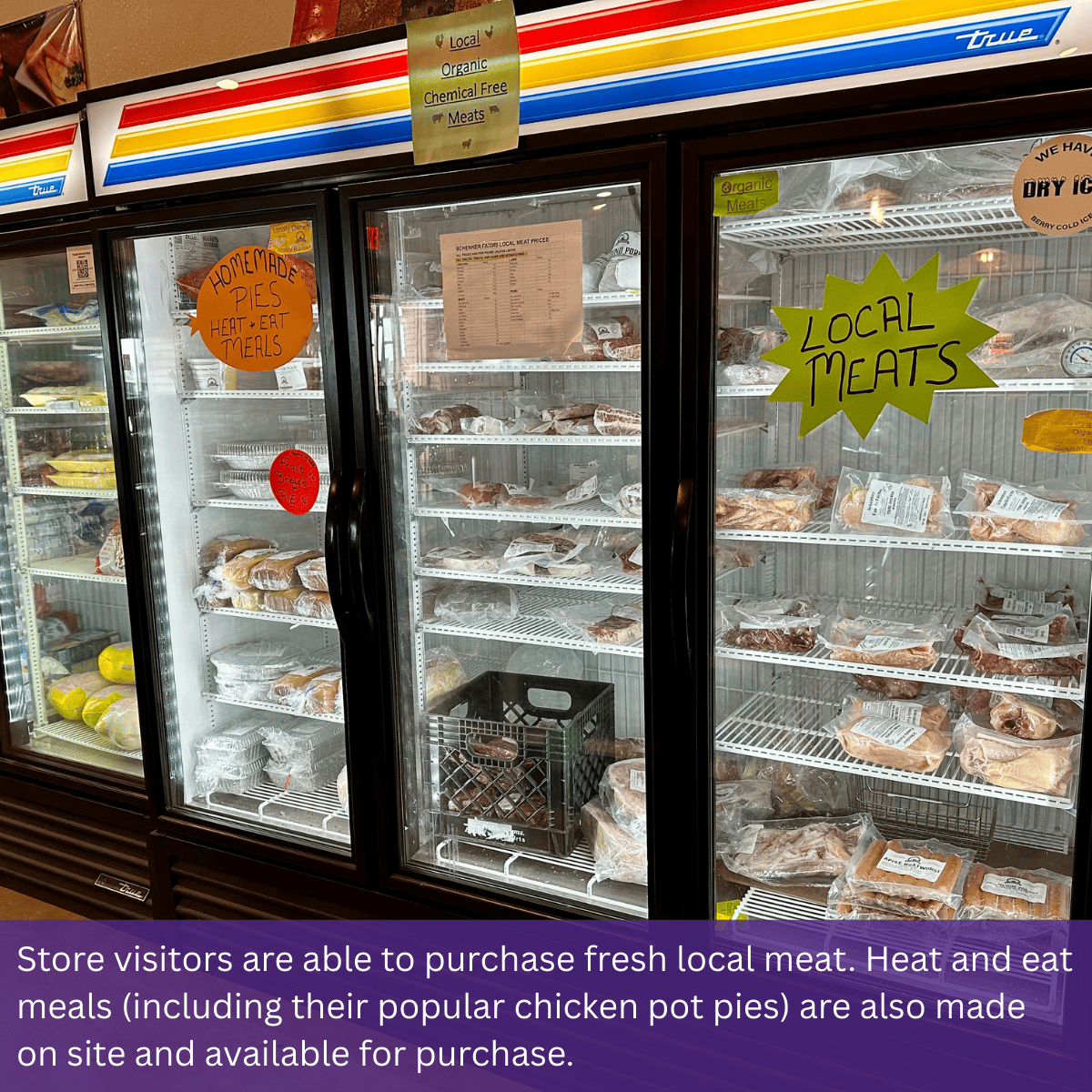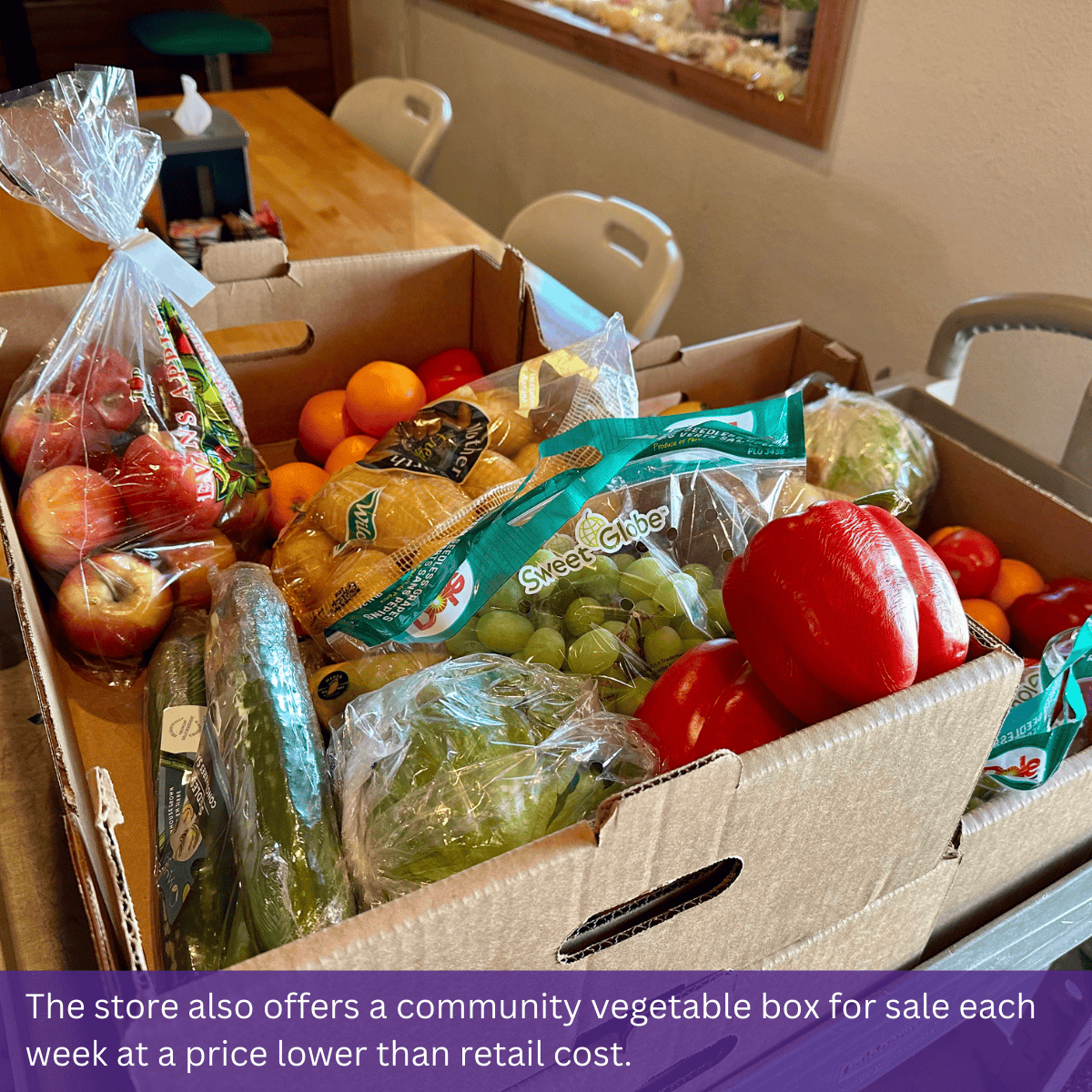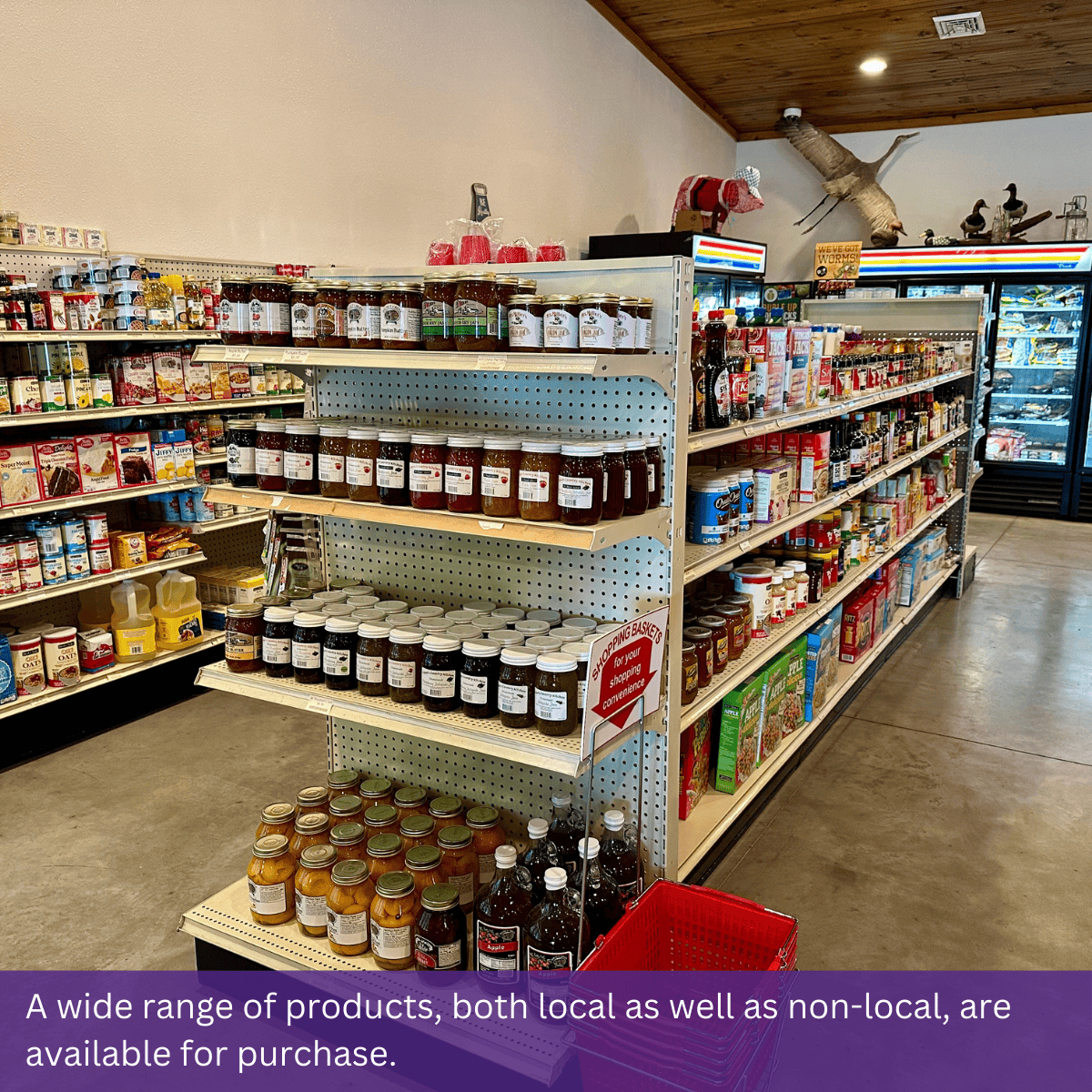Rural Grocery Spotlight: McCune Farm to Market (McCune, Kansas)

Cherie and Kevin Schenker are the owners of Schenker Family Farms and McCune Farm to Market. Cherie gave us a tour of their McCune Farm to Market store, including the 6,000-square-foot addition currently under construction. She also shared about the importance of having a grocery store in small towns like McCune, Kansas. Read highlights from our interview with her (which has been edited for length) below.

What is your store most known for in the community?
For southeast Kansas, we’re known for just being something different. When you come in here, you're taking a step back to when locally grown food was important and it was done well. It was done right. And when you come in here, you have a certain expectation that you’ll find great foods. You're going to find a nice selection of meats, produce and groceries. If you want to sit down and have a hot meal, it's going to be scratch. You have a different experience. If you want to learn to make cheese, there's going to be an opportunity for that. If you want to take home a chicken pot pie, it's going to be scratch made.
What are some of your most popular or unique products?
Our most popular take-and-bake would be chicken pot pies, closely followed by bierocks. And then we sell a tremendous amount of lard and tallow rendered from our local beef or our local pork. It’s rendered here and it’s done without preservatives. In terms of the grocery side, we probably item-by-item sell more milk than anything else followed by a loaf of bread followed by meats and traditional groceries.

What role does your store play in the community?
We employ people. Of course, we pay more sales tax than anyone else in the community, so that's a big thing. For a small town, sales tax is vital. We serve as our town's grocery store. And then we also do classes here on cheesemaking, or jelly making, or how to can tomatoes, etc. We try to truly make it a gathering place. And then in an effort to get more fresh vegetables to the people that need it the most, we do a community vegetable box. So every week, you can pick up a big box of vegetables. Retail is $30 to $35 and we sell them for $21 and they're EBT approved. We also aggregate vegetables, honey and more for local producers through our store and wholesale accounts.
What are some of the biggest challenges that your store faces on a day-to-day basis?
Like all small stores, we don't do the volume of big stores. So, cash flow can be a problem because you really have to be mindful when you order things that you're not sitting on two cases of something because eventually that's going to have an expiration date. And yes, you can mark some stuff down, but you don't move the volume like you do in a large store.

What advice would you give to other rural grocers, especially those who are just starting out?
Just starting out, I think you need to mentally prepare to really understand that no matter what you do, you are very likely not going to be the main place that your community shops. We've gone through two generations now in small towns where someone's retired, they’ve lost their grocery store, and so people are no longer used to shopping in their small towns. Coupled with the perception that the big box store is going to be cheaper... When you really start price checking, there are many, many things that they are not cheaper on. Your little guy's going to be cheaper because he doesn’t have the same overhead.
Store History
In 2008, the Schenkers started working to sell beef working out of their lawnmower shed with a chest freezer given to them by Cherie’s grandfather. They quickly outgrew the space and built on to the shed a couple of times before taking over their living room to the point that the only thing left in there besides office desks was Cherie’s grandmother’s piano. They received a Value-Added Producer Grant to do a feasibility study which encouraged them to modify their plans to not only develop a warehouse space but also create a space for the community. They opened up their new store space to the public on August 17, 2017. The space includes a commercial kitchen which allows them to do value-added products like bone broth, soups, chicken pot pies, and other “heat-and-eat" type items. They offer breakfast and lunch at their in-store cafe. They are also currently working to get their bakery USDA-inspected to be able to wholesale their chicken pot pies and bierocks, among other products, to other stores. In addition, they are currently completing construction on an addition to the store to be able to increase their aggregation efforts as they aggregate a number of products (including honey, pecans, and all kinds of produce) from other producers. From their humble beginnings in 2008, they have grown to now employ 22 people and hope to increase that number to 30 in the next two years.
*Brand names appearing in this article are for product identification purposes only. No endorsement is intended, nor is criticism implied of similar products not mentioned.